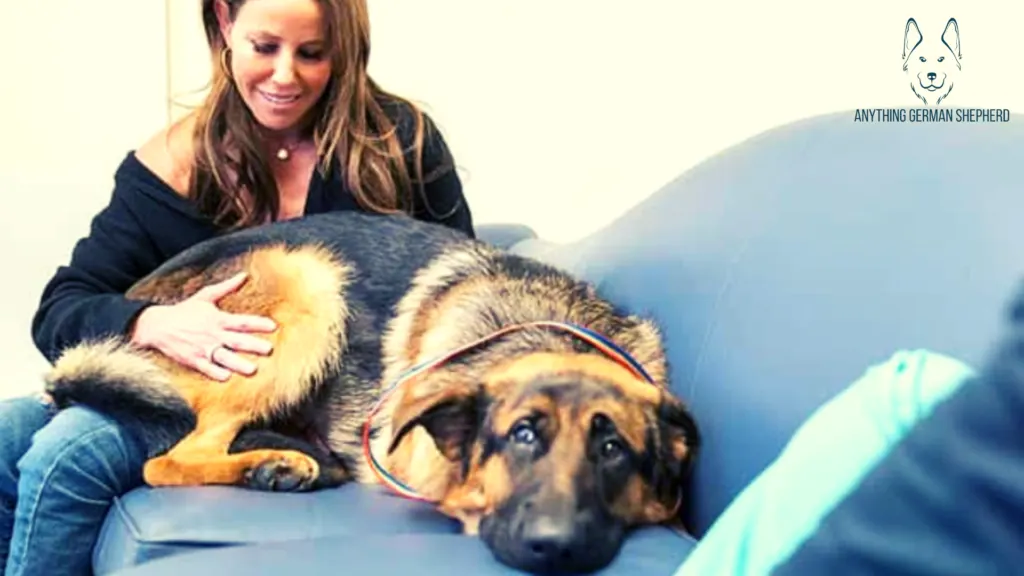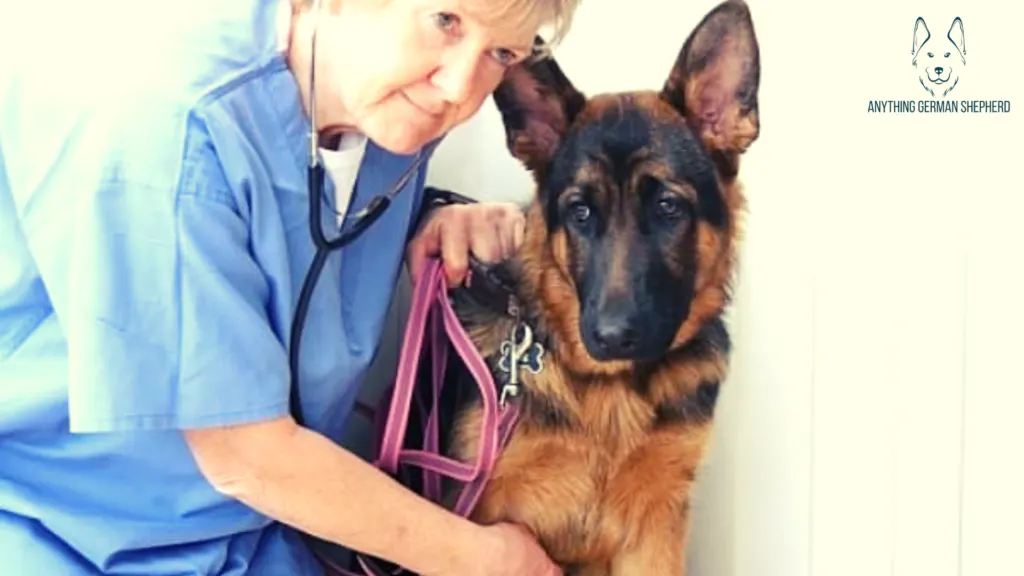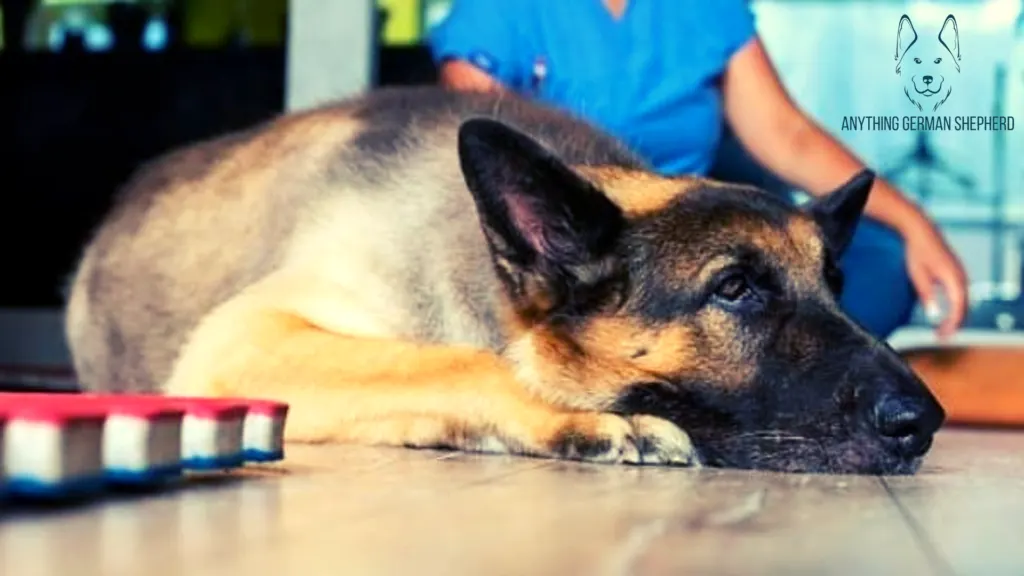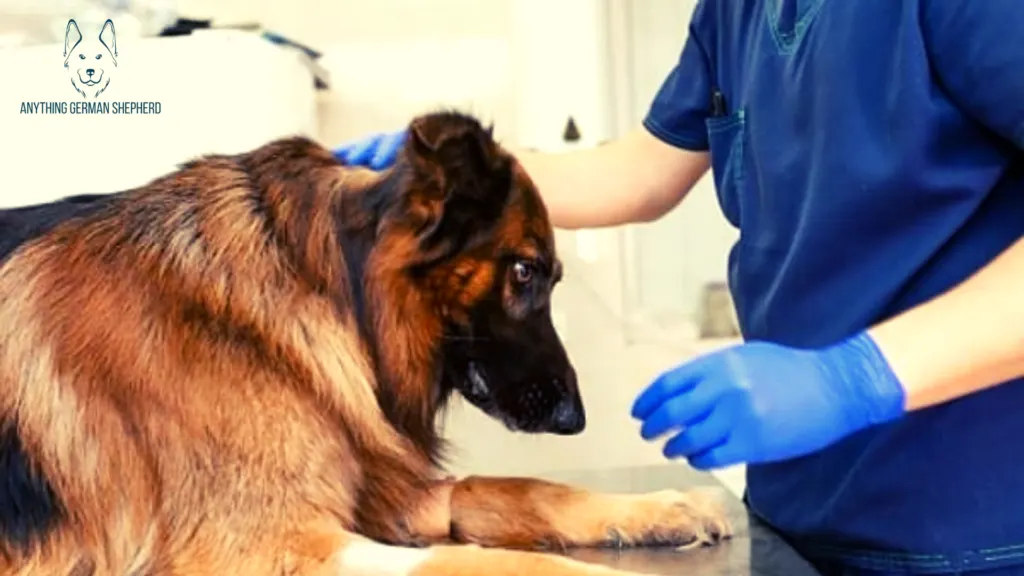Why Does My German Shepherd Have Diarrhea: Causes and What To Do
German Shepherds can get diarrhea for a number of reasons, including:
- Changing their water or food
- Changing their environment, like moving to a new home
- Too many treats or “human food” scraps
- General stress caused by crate training, kids, or other pets
- Eating things they shouldn’t
- Worms and parasites, and other viral or bacterial infections
The main symptoms of diarrhea in German Shepherds includes:
- Watery or loose stool
- More feces than normal
- Frequent ‘accidents’
- Your dog straining itself to pass feces
- Mucus or blood in the stool
- Vomiting
- Fever
- Abdominal bloating or pain
- Low energy
- Lack of appetite
- General Weakness
German Shepherds are incredible canines.
This dog breed has been wildly popular ever since a German cavalry officer named Max von Stephanitz first introduced the breed back in the 18th century.
One reason German Shepherds are so enduringly beloved is that they are so intelligent and attuned to “their” people.
GSDs live to be with their human families.
But of course, you know this – you are owned by a German Shepherd too!
Unfortunately, the German Shepherd’s sensitivity isn’t only in their head and heart.
Sometimes the GSD can have a lot of sensitivity in the gut as well.
This can lead to a number of concerning health issues, not the least of which is diarrhea.
If you are wondering why your German Shepherd has diarrhea, this is definitely the article you need to read.
In this article, we’ll cover the main symptoms of diarrhea in German Shepherds, why they get diarrhea, and how to treat it.

What Is Diarrhea in German Shepherds: Veterinary Diagnostic Criteria
Whenever your German Shepherd seems unwell, it is always smart to start by listing out the symptoms you see.
When you suspect that your GSD has diarrhea, these are the main symptoms canine veterinarians know to look for:
- Watery or loose stool
- More feces than normal
- “Accidents”
- Your dog seems to be straining to pass feces
- Mucus or blood in the stool
Sometimes additional symptoms may accompany diarrhea, such as vomiting, fever, abdominal bloating or pain, low energy, lack of appetite, and weakness.
These are signs there may be a more serious underlying health condition.
Why Do German Shepherds Get Diarrhea? An Overview
Just like their people, German Shepherd dogs can develop diarrhea at any age and stage of life.
And just like in people, diarrhea in German Shepherds should never be ignored.
It is a sign from your dog’s digestive system that something is amiss.
Sometimes the reason is very temporary and passing.
But for German Shepherds in particular, sometimes the reason can be an underlying digestive disorder.
German Shepherds, in particular, are prone to digestive disorders ranging from a sensitive stomach to G.I. disease.
As Central Texas Veterinary Specialty & Emergency Hospital explains, symptoms like weight loss, vomiting, and diarrhea can be warning signs of an underlying genetic health condition.
In fact, in research published in the Journal of Canine Genetics and Epidemiology, researchers pointed out that diarrhea was one of the most consistent health issues reported by German Shepherd owners.
Clearly, there are a number of reasons why a German Shepherd might develop diarrhea.
These reasons can sometimes be related to age or life stage as well as the environment, which is what we will talk about in the next section here.

Main Causes of Diarrhea in German Shepherd Puppies
Puppyhood is a time of extreme transition for German Shepherds. As a large breed dog, a GSD puppy is growing up fast and every day is different.
Everything is subject to change at a moment’s notice, from the food they eat to where they live to what their day is like.
Some of the major milestones in a GSD puppy’s life are related to the gut and the digestive system.
It can take up to 12 months before a German Shepherd puppy’s gastrointestinal system is fully developed and stabilized.
A GSD puppy may change foods three or more times during this period – transitioning from their mother’s milk to puppy food and then to adult food.
Since German Shepherds are genetically predisposed to have issues with sensitive stomachs, each food change has the potential to cause diarrhea.
As well, other major stressors can cause temporary bouts of diarrhea. As the German Shepherd Dog Club of America (GSDCA) explains, all of these stressors may cause a puppy to experience diarrhea:
- Change in their water.
- Change in their food.
- Change in their environment (such as rehoming).
- Too many dog treats or “people” food scraps.
- Stress (crate training, kids, other pets, etc.).
- Eating things they shouldn’t (poop, mulch, cardboard, et al).
- Worms and parasites, a viral or bacterial infection.
Diseases That Can Cause Diarrhea in German Shepherd Adult Dogs
There are several potentially heritable (genetic) health conditions that can cause occasional or chronic diarrhea in adult German Shepherds.
Pancreatic Enzyme Insufficiency
As the Mid-Atlantic German Shepherd Rescue charity (MAGSR) points out, one of the main genetic causes of diarrhea in German Shepherd dogs is a condition called pancreatic enzyme insufficiency.
As far as canine biologists know, German Shepherds are the only dog breed to have this particular condition.
The two main warning signs of pancreatic enzyme insufficiency are ongoing diarrhea and rapid weight loss.
What happens is that the dog’s pancreas does not produce enough digestive enzymes to help the food get digested and absorbed.
The only current treatment is to add digestive enzymes at each meal.
Even so, pancreatic enzyme insufficiency is known to be life-limiting.

Inflammatory Bowel Disease
As WebMD for Pets explains, inflammatory bowel disease, or IBD, can affect a number of purebred dog breeds including the German Shepherd.
IBD happens when the cells that line the stomach intestine begin to collect substantial amounts of inflammatory cells.
These cells disrupt the normal function of both organs by preventing the food from being properly digested and absorbed by the body for use.
The symptoms of IBD will depend on where the inflammatory cells congregate.
If the cells choose to gather in the colon and lower intestine, chronic diarrhea is common.
Often owners will report seeing mucus or blood.
Other symptoms include loss of appetite, weight loss, depression, and lack of energy.
Blood work, ultrasound, X-rays, and G.I. biopsy are the most common diagnostic procedure.
There is no cure and IBD can be life-limiting. The only treatment is dietary changes and medications.
Unfortunately, ongoing research has yet to figure out exactly what causes IBD to get triggered.
Other Causes of Diarrhea in German Shepherds
When your German Shepherd is experiencing chronic diarrhea that does not seem to respond to the usual remedies, it is always time to look deeper.
But sometimes diarrhea, like life, just happens and then it passes.
When the episode is brief, you may not ever know exactly what caused your GSD to have diarrhea.
As VCA Animal Hospital points out, “dietary indiscretion” is perhaps the most common cause of occasional bouts of canine diarrhea.
In other words, your German Shepherd ate something they shouldn’t have eaten. This may range from garbage to garden mulch, lawn mushrooms to cat poop.
There are four basic categories of canine diarrhea when it is not related to an underlying disease:
1. Motility issues. With motility issues, the gut pushes the food through too fast.
2. Intestinal exudation. Ulcers in the intestinal tract can cause blood and fluid to seep in or out.
3. Over secretion. When the intestinal tract is exposed to a pathogen (parasite, bacteria, et al) it will secret too much liquid to try to cleanse itself.
4. Osmotic imbalance. When too many food molecules crowd into the intestines together, this draws in water and causes diarrhea.
Parasites, worms, viruses, bacteria, and fungus can cause diarrhea. Liver and kidney disease can also trigger bouts of diarrhea.
Ingestion of poisons and toxins may also give rise to diarrhea and other symptoms.

Treating Diarrhea in German Shepherd Dogs
As with any health issue, your German Shepherd is suffering from, the very first step is always to make sure you know what is causing diarrhea.
The best approach is to schedule an appointment with your canine veterinarian to get a correct diagnosis.
Your veterinarian may want to take fecal samples and run tests to identify the underlying cause of your dog’s diarrhea.
Then you can match the treatment to the cause.
As this YouTube video by a veterinarian explains, antibiotics may be necessary when diarrhea is caused by a parasite or bacteria.
The American Kennel Club (AKC) suggests feeding your dog some pumpkin.
Pumpkin has healthy prebiotics and lots of vitamins and minerals that can replenish your dog’s body.
Just make sure that the pumpkin product you choose is just plain pumpkin puree with no additives.
Check to be sure there is no xylitol, a sugar substitute that can be fatal to dogs.
Sometimes diarrhea arises and subsides quite quickly, and when this happens, just make sure your dog takes in plenty of water and gets lots of rest.
But if diarrhea lasts more than 24 hours without abating, it is time to call your dog’s veterinarian.
Recommended reading: Cleaning A German Shepherd’s Eyes






























